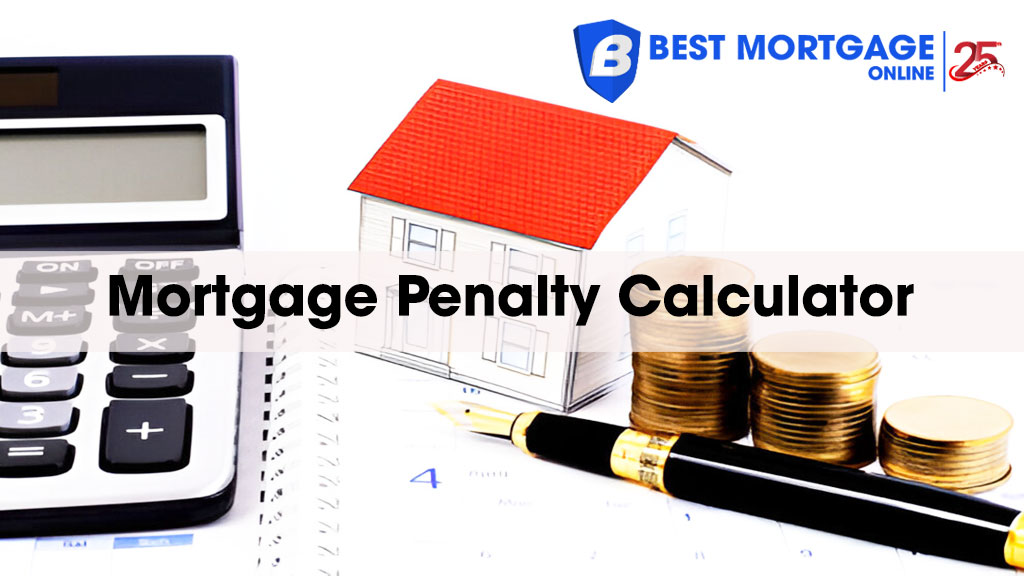According to the Canada Mortgage and Housing Corporation’s latest report, there will be approximately 1.2 million mortgage renewals in 2025. However, many Canadians are discovering that this process is not always guaranteed.
Being denied threatens long-term housing stability. Therefore, understanding what happens if your mortgage renewal is denied is essential for making informed decisions, mitigating risks, and securing alternative financing solutions before your current term ends.
Can you be denied a mortgage renewal in Canada?
Yes, banks and lenders in Canada can deny your mortgage renewal. They have the legal right to refuse renewal if you no longer meet their lending criteria or if you pose an increased financial risk.
While your current lender does not require full requalification, they still monitor your payment history and may check your credit score.
However, this denial is not a foreclosure. Instead, you have options and time to find alternative solutions. That’s the reason why you need to investigate what happens if your mortgage renewal is denied in Canada.
What happens if your mortgage renewal is denied in Canada?
When your mortgage renewal is denied, you will need to quickly find a new lender who will treat it like a new application, requiring full documentation and qualification. Failure to secure financing and continue payments can lead to legal action and potentially the sale of your home under power of sale laws.
Your lender is required to provide notification under provincial regulations, even though the existing mortgage terms continue temporarily while you seek solutions. New lenders treat your application as a fresh mortgage. So, they require complete documentation and qualification under the current lending criteria.
This continuation means you should maintain regular payments to prevent triggering legal notices that may follow persistent non-payment.
The denial begins to impact your credit score immediately through increased credit inquiries as you search for alternatives. It creates additional stress and uncertainty for your household.
If you can not secure new financing and stop making payments, your lender will begin legal proceedings. In most provinces, lenders use the power of sale rather than mortgage foreclosure, allowing them to sell your property to recover their money.
Why would my mortgage renewal be denied?
The 5 most common reasons that can make your current or new lender deny your mortgage renewal in Canada are:
- Mortgage declined due to late payment
Even with your current lender, consistently missed or late payments signal financial distress. If you have a mortgage in arrears at renewal time, denial becomes almost certain. Lenders view payment history as the best predictor of future behaviour. Therefore, even one or two late payments can raise red flags.
- Mortgage renewal denied due to a bad credit score
While they may not require a full credit check for simple renewals, many lenders now verify credit scores before offering renewal terms. A score below 680 can trigger concerns, especially if it has fallen due to missed payments on other debts or high credit utilization.
- Income and employment changes lead to a denial of mortgage renewal
Job loss, reduced hours, or switching from employment to self-employment can all affect your approval. Even if you have maintained a perfect payment history, lenders worry about your ability to continue paying. They may request proof of income. If you can not demonstrate stable earnings, mortgage renewal becomes uncertain.
- Mortgage declined due to debt service ratio concerns
Your debt service ratios tell lenders whether you can afford your housing costs alongside other obligations. The GDS ratio should stay below 39%. Your TDS ratio should remain under 44%. Taking on car loans, credit card debt or other obligations can push these ratios too high.
- A bank denies a mortgage renewal due to market and property factors
If your home’s value has declined significantly, your loan-to-value ratio might exceed lender comfort levels. What was once a low-ratio mortgage might now be considered a high-ratio mortgage, potentially requiring mortgage insurance or leading to denial.

What should you do if your mortgage renewal is denied?
Taking immediate, strategic action after denial can mean the difference between keeping and losing your home. Here’s a 6 approach to handling mortgage renewal denial in Canada:
Understand exactly why you were denied
Request a detailed explanation from your lender in writing. This information guides addressing credit issues requires different strategies than dealing with income loss. Do not accept vague responses. You need specific reasons to create an effective action plan.
Address the underlying issues causing renewal denial
While seeking immediate financing solutions, simultaneously work on improving your situation. If credit is the issue, pay down high-interest debt and ensure all payments are up to date. For income problems, document any new employment or additional income sources. These improvements help you qualify for better terms later.
Calculate whether keeping your home makes financial sense. Sometimes, mortgage renewal denial signals deeper affordability issues. If mortgage payments consume too much of your income, even at current rates, consider whether downsizing or selling might improve your long-term financial health. This difficult decision could prevent years of financial stress.
Contact your current lender immediately
Even if a new lender rejects your application, your existing lender might still renew your mortgage. Be honest about your situation and demonstrate your commitment to maintaining payments. Then, ask about other options to reduce monthly payments.
Alternative financing
Most lenders offer a 90 to 180-day early renewal window. It allows proactive homeowners to start the process well before their term expires. Once denial occurs, you receive a 30 to 60-day notice to arrange alternative financing.
If you need more time, a bridge loan can provide a 3 to 6-month solution or longer while you improve your financial situation or complete a sale. Private lending can often be arranged quickly when traditional options fail. At the same time, selling your property requires 60 to 90 days to complete the transaction properly.
Engage a mortgage broker as soon as possible
Brokers have access to multiple lenders. They include B lenders and alternative financing sources that work with borrowers facing credit or income challenges. They understand which lenders are most likely to approve your specific situation and can often negotiate better terms than you would achieve independently.
While they charge higher interest rates to compensate for increased risk, they can provide the bridge you need to maintain homeownership while rebuilding your financial position.
Look into co-signing possibilities
A mortgage co-signer, such as a family member or trusted friend with strong credit and a stable income, can transform a denial into approval. However, ensure everyone understands the implications: the co-signer becomes equally responsible for the mortgage. Create clear agreements about expectations and exit strategies.
Create a realistic timeline and backup plan
Map out how long each option might take and what happens if it does not work. Private lending might buy you six months to improve your credit for B lender approval. Having multiple strategies prevents panic decisions when time runs short.
Throughout this process, maintain communication with your current lender and continue making payments. Even if renewal seems unlikely, protecting your credit rating keeps more options open. Document all conversations and keep detailed records of your efforts to find solutions. This information may prove valuable if legal issues arise.
FAQs about mortgage renewal denial
Will a mortgage renewal denial appear on my credit report?
No. However, if you apply with multiple lenders while seeking alternatives, these credit inquiries will show up and may temporarily lower your score. Any missed payments, whether during or after the denial process, will negatively impact your credit rating.
Can I stay in my home while looking for new financing?
Yes, as long as you continue making mortgage payments, you can remain in your home while seeking alternative financing. Your current mortgage terms continue until you either find new financing or default on payments. Some lenders offer short-term extensions specifically to give borrowers time to arrange alternatives.
Can bankruptcy or a consumer proposal affect mortgage renewal?
If you have filed for bankruptcy or entered a consumer proposal, renewing with your current lender remains possible if you have maintained your mortgage payments. However, switching lenders becomes extremely difficult until you have rebuilt your credit. Keep your current lender informed and ensure your mortgage payments remain current throughout the insolvency process.
Should I use retirement savings to avoid mortgage renewal denial?
Yes. But it should be a last resort after exploring all other options. Consider the tax implications, early withdrawal penalties, and lost future growth. Consult a financial advisor to understand the impact before making a decision.
The bottom line
Mortgage renewal denial in Canada is not a common occurrence. But when it happens, it demands immediate attention and strategic action. Remember that homeowners have possible options to consider when this process is not approved. You can negotiate with other lenders, seek private financing, or improve your financial health to qualify anew.
Knowing what happens if your mortgage renewal is denied empowers you to act swiftly, protect your investment, and maintain control over your housing future.



